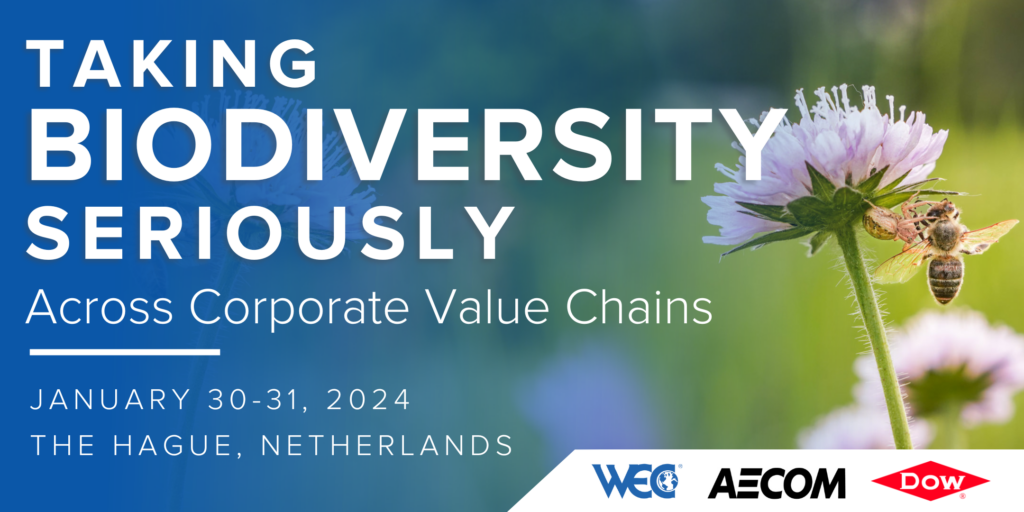Empower Innovation Challenge
The World Environment Center (WEC), and its partners, the Núcleo de Biotecnología de Curauma (NBC) and Baastel, launched the third and final competition of the "Empower Innovation Challenge" (EIC) in […]
The World Environment Center hosts a wide range of events throughout the year, from large international conferences to small community workshops. We always have something new and exciting in the works.
Whether you’re looking to learn about the latest sustainability practices, network with other corporate leaders, or take action on a specific issue, there’s something for you.
The World Environment Center (WEC), and its partners, the Núcleo de Biotecnología de Curauma (NBC) and Baastel, launched the third and final competition of the "Empower Innovation Challenge" (EIC) in […]
World Environment Center (WEC) seeks innovative projects to participate in its Circularity Challenge/ Concurso de la Circularidad, a competition to award US$210,000 to nine organizations engaged in public participation in […]
Event: “Developing Water Infrastructure Systems for Greater Resilience” When: April 23-24, 2024 2:00PM - 1:00PM Where: Atlanta GA (USA) About the Event: The World Environment Center, alongside CRH and Jacobs, […]
WEC and members convened in The Hague, Netherlands at the end of January where industry leaders discussed a range of

MAY 2021
OCT 2018
SEP 2017
JUL 2016
NOV 2011
NOV 2010
AUG 2009
APR 2009
NOV 2008
OCT 2008
APR 2017
NOV 2015
FEB 2014
OCT 2009
JUN 2022
NOV 2018
APR 2010
MAR 2016
SEP 2015
OCT 2014
JUN 2011
SEP 2008
NOV 2017
NOV 2016
APR 2016
DEC 2015
JUN 2015
MAR 2014
MAR 2013
NOV 2012
FEB 2012
NOV 2011
MAY 2011
MAY 2010
FEB 2019
SEP 2017
APR 2016
FEB 2016
7200 Wisconsin Avenue, Suite 500,
Bethesda MD 20814 USA
Mailing Address:
9466 Georgia Avenue, PMB 2115,
Silver Spring MD 20910 USA
Telephone: 301-588-8994
Europe Office
Munich, Germany
Latin America Office
San Salvador, El Salvador